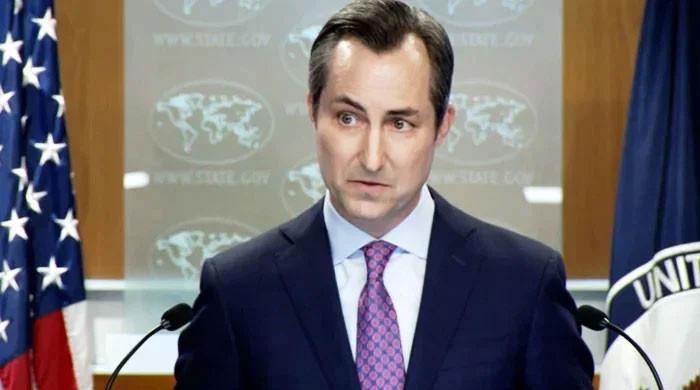- The US State Department recognizes Pakistan’s immense sacrifices in combating terrorism.
- Over 80,000 Pakistani lives were lost in the war against terror, with significant economic impact.
- The US and Pakistan continue to collaborate on regional security and counter-terrorism efforts.
In a major development, the US Department of State acknowledged Pakistan’s unmatched sacrifices and contributions in the war against terrorism, emphasizing the profound impact on the nation. During a news briefing in Washington, US State Department spokesperson Matthew Miller stated, “The Pakistani people have suffered greatly at the hands of terrorists.” He highlighted that the country and its armed forces have made significant sacrifices, losing more than 80,000 lives and facing substantial economic losses.
In 2023 alone, over 260 officers and soldiers of the Pakistan Army laid down their lives in the line of duty, while at least 750 civilians were killed in terror attacks, according to data shared by APP. Miller further emphasized the shared interest in regional security threats, stating, “We partner with a range of Pakistani civilian institutions and regularly engage with the Pakistani government to identify opportunities to build capacity and strengthen regional security, including in our annual high-level counter-terrorism dialogue.”
Addressing a question regarding the May 9 riots, Miller reiterated the US stance on freedom of expression and peaceful assembly. “We support legitimate, free expression including the right to protest and the right to peaceful assembly, and we oppose violent actions,” he said. He stressed that protests should be conducted peacefully and that governments should adhere to the rule of law and free speech.
The May 9 riots erupted across Pakistan following the arrest of former Prime Minister Imran Khan in the £190 million settlement case. The protests saw hundreds of PTI workers and senior leaders detained for their involvement in violence and attacks on military installations. During these protests, civil and military targets, including Jinnah House and the General Headquarters in Rawalpindi, were attacked. The military termed May 9 “Black Day” and decided to try the protesters under the Army Act.





